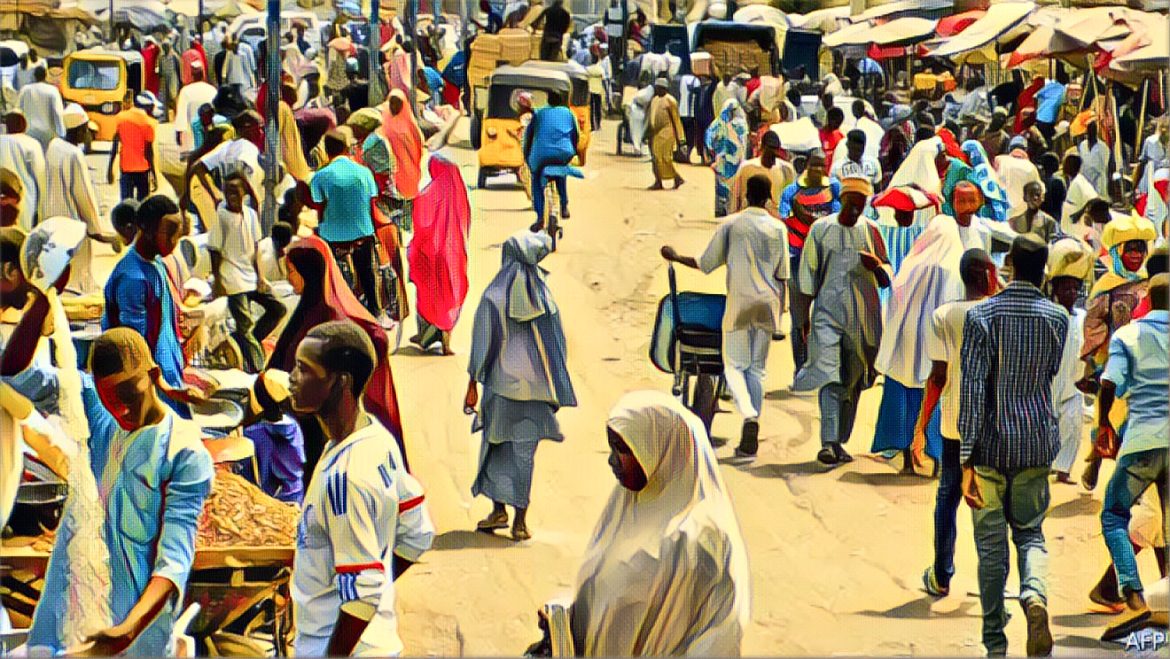Nigeria’s economy faces a critical juncture, with recent data painting a troubling picture of the nation’s fiscal health. Despite numerous early warnings, a lack of decisive action threatens to plunge the economy into deeper trouble.
Three separate data sets, including one from a federal government agency, have recently highlighted the deteriorating condition of an average Nigerian’s life. The studies, issued by both governmental and non-governmental entities, collectively validate the growing economic distress.
The National Bureau of Statistics (NBS) released demographic data from the National Population Commission (NPC), revealing a nearly 30 percent increase in the country’s population over the past decade, from 167 million in 2012 to 216.78 million last year. Contrasting this, economic growth has been sluggish, inching from $464 billion to $477.4 billion, far outpaced by population growth.
This disparity indicates more Nigerians competing for limited goods and services, reflected in the country’s misery index, which reached a record high of nearly 80 points earlier this year.
The government’s increasing public debt, soaring from under N10 trillion to over N80 trillion without substantial infrastructure investment, further clouds the future. This burgeoning debt hampers development, exacerbating poverty and related crises.
The NBS Demographics Statistics Bulletin 2022 highlights the impact on future generations, who face challenges in nutrition, education, and other essential areas. The report indicates that nine out of ten children under five lack access to eggs, and a similar proportion cannot afford dairy products. Additionally, about 60 percent of Nigerian kids do not consume meat, signaling poor nutritional intake.
The NBS report also sheds light on family planning practices. Only 18.4 percent of the population uses modern contraceptive methods, hinting at continued population growth and sustained pressure on resources.
Contrasting countries like India, where large populations have been turned into demographic dividends, Nigeria’s soaring population, coupled with low local capacity utilisation and inadequate infrastructure funding, could spell a nightmare scenario.
Joblessness in Nigeria, officially reported at 33.3 percent, further exacerbates the situation. The active population (25 to 64 years) comprises only 36 percent of the total, indicating a high dependency ratio.
The World Bank’s Nigeria Development Update (NDU) praises the country’s readiness for economic reforms but warns against halting current initiatives, including fuel subsidy removal. Abandoning these reforms could lead to more severe economic consequences, with the debt service to revenue ratio expected to climb dramatically.
Additionally, the World Bank’s International Debt Report highlights the strain of debt service on developing countries. For Nigeria, servicing debt diverts crucial resources from health, education, and the environment.
The Enhancing Financial Innovation and Access (EFInA) 2023 Access to Financial Services (A2F) Survey also points to significant challenges in achieving inclusive growth. The survey finds that about 85 percent of Nigerian adults face liquidity issues, a significant increase from previous years.
As urbanization accelerates, the strain on urban infrastructure increases, while agricultural activities decrease. This shift presents further challenges for an economy already grappling with deep-rooted structural issues.
In conclusion, these reports collectively urge Nigeria to embrace structural reforms for sustainable growth and poverty reduction, emphasizing that the nation’s economic outlook hinges on effective macroeconomic stabilization.


